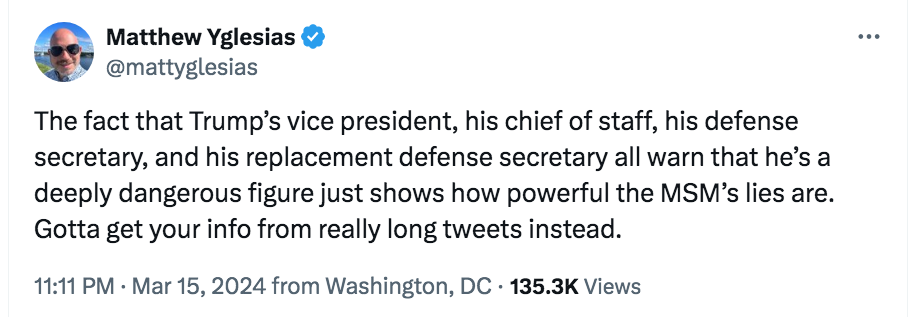People ask me: “What do you think about X?” It might be the path of interest rates or stock prices or the rate of inflation. I might respond “Well, the market is predicting . . . ” They respond; “No, what do YOU think about X.”
I can only respond, what do you mean by “you”?
Most people probably find me to be rather annoying, as I don’t believe in lots of things that are widely accepted, like asset bubbles, objective truth, and personal identity. That last one is especially hard to explain.
It’s not so much that I have multiple personalities, rather my single personality has multiple aspects. Yes, I may have a hunch as to where some economic variable is headed, and my hunch may differ from the market forecast. But unlike most people, I don’t privilege that hunch over my rational belief in the EMH. It makes no sense to speak of what I “really believe”, as I have multiple beliefs, located in different parts of my brain.
A few years back, I got into hot water for a post where I said I thought another pundit’s ideas seemed crazy, but on the other hand some extremely brilliant economists thought her views were quite interesting, so I had to accept that my gut reaction might not be correct.
Because most people do believe in the concept of personal identity, they took my gut reaction as my “real belief” and my reference to what other people believe as just so much window dressing. But that is not how I look at things. If my life were on the line, I’d go with what the market forecast, not my “hunch” as to where an asset price was headed.
There are many issues where people should not hold strongly held views. I’ve read many articles on AI risk. I’ve listened to podcasts. It’s obvious that the most brilliant minds in the world have reached absolutely no consensus on the question of whether AI poses an existential threat. It’s also obvious to me that many of these experts are much smarter than me. Not just smarter in the sense that they know more about AI whereas I know relatively more about the Fed (although that’s true), but smarter in the sense that they have far higher IQs.
So if someone far smarter and far more well informed than me tells me that AI is extremely dangerous, and he or she has studied the issue intensively for their entire adult life, on what possible basis could I tell them that they’re wrong? Do you think I have a counterargument that they’ve never heard? Do you think that they aren’t smart enough to understand my arguments?
“Previous fears over technology proved to be groundless, or wild overreactions.”
“Oh really, and which of those technologies involved creating entities that were far smarter than humans.”
At the same time, there are equally bright people who don’t see AI as a threat to humanity. Do you think I know something that they don’t know? Of course not. So I’m agnostic on the AI risk question. You should be too.
When it comes to personal beliefs, people tend to have big egos. They are overconfident in their views on politics, religion, economics, sociology, even sports.
On almost any issue, you should have at least two views. An inside view, which represents your hunch as to what is true, and an outside view that represents the rational forecast of the truth given both your hunch and weighted average of the views of experts. When it comes to AI risk, I put a weight of roughly zero on my inside view, and 100% on the experts. The problem here, of course, is that even the experts don’t agree.
PS. Wait, didn’t I say I don’t believe in truth? No, I said I didn’t believe in objective truth. When I say something is true, I merely mean that I predict that this will be the consensus view in the very long run. Since we never reach the end of time, there is no objective truth. It’s always provisional—things regarded as true, with varying levels of confidence.
PPS. Think about these questions:
1. What would an entity with an IQ of 250 be capable of doing?
2. What would an entity with an IQ of 250 choose to do?
You think you know the answer to either question? Oh really, what’s your IQ?
BTW, I’m agnostic on the question of whether we could even build something this smart.




